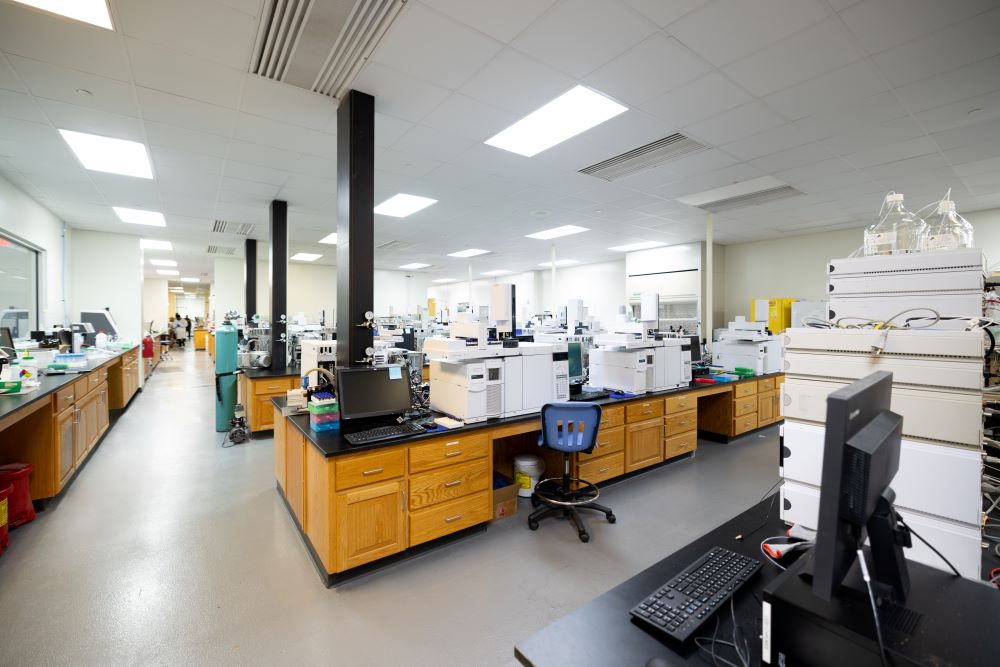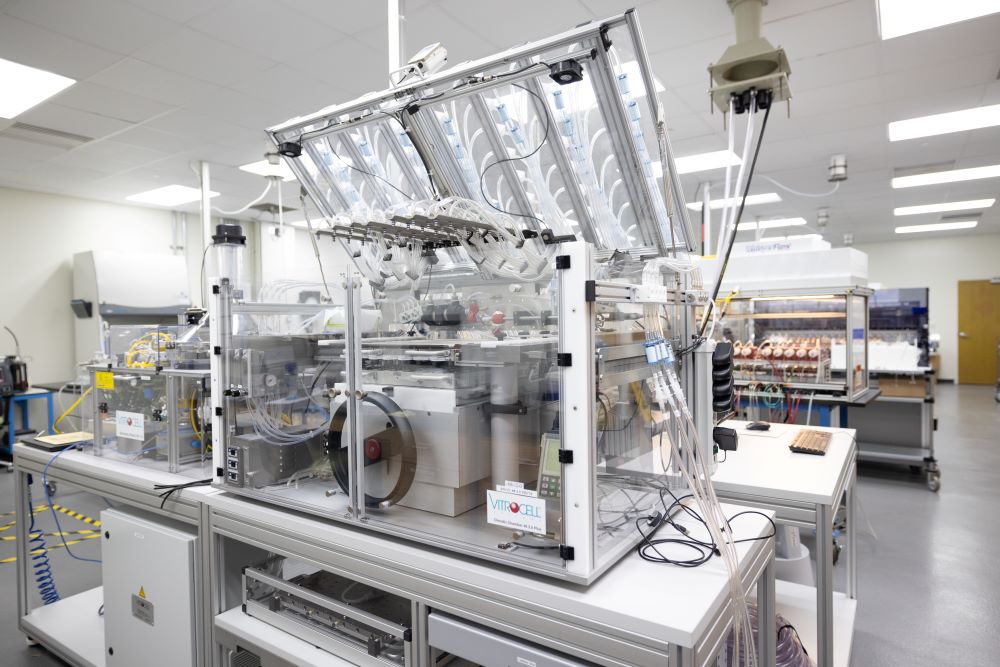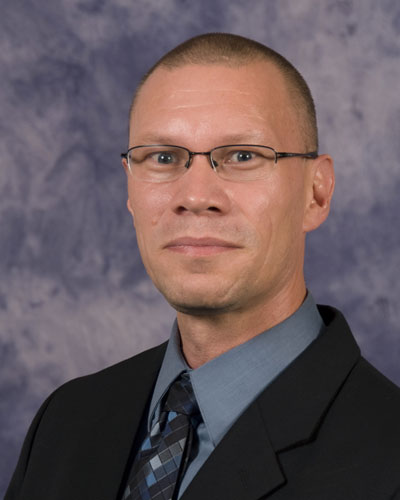Confidence and Confidentiality
- Also in TR Print Edition
- April 1, 2024
- 0
- 11 minutes read


McKinney Specialty Labs has the expertise to generate trustworthy data and the discretion to share it only with authorized users.
By Taco Tuinstra
If you want to quickly grasp the difference between vaping and smoking, peek into the e-cigarette testing laboratory at McKinney Specialty Labs in Richmond, Virginia, USA. Then compare it to the smoking lab a few steps down the hall. The first room looks bright and crisp, almost like a hospital operating theater, while the second room has tubes exhausting cigarette smoke out of the lab, bringing to mind the scene from a sci-fi thriller.
If you want to obtain a more profound understanding of the complex aerosols generated by vapes and combustible cigarettes, however, you will have to analyze them scientifically—and this is what McKinney Specialty Labs excels at. Among other services, the lab offers physical testing, which includes characterizing the particle size distribution and output of aerosols; microbiological testing; toxicology testing and regulatory compliance assistance. It also tests the ignition propensity of combustible products.
To carry out such tests, the 57,000-square-foot facility is equipped with some of the industry’s most sophisticated instrumentation, including machinery that less apportioned laboratories might only dream of. Jake Hilldrup, technical director of chemistry, points out some highlights. McKinney Specialty Labs is the proud owner of a Virtrocell model 48 v2.0, for example—an instrument that exposes cells directly to aerosols. By skipping intermediate steps such as capturing the aerosol before adding it to cells, the Vitrocell mimics the conditions under which products are consumed better than conventional equipment.
Hilldrup then gestures to a collection of red devices with spikes. “The spike is a probe for electrostatic precipitation from metals,” he explains. The machine generates an electrostatic field that causes all the aerosol particles to stick to the sides of a quartz tube, allowing researchers to collect them without a pad. This is important, says Hilldrup, because many pads arrive from the supplier with background levels of metals, making it difficult to get a good baseline. “The probes ensure cleaner collection and better reproducibility,” he says. “They are very state-of-the-art tools for metal collection that other labs are not using yet.”
In yet another room, the company has set up a dissolution apparatus to analyze the performance of nicotine pouches, which have been taking the U.S. tobacco market by storm recently. The machines run artificial saliva through the system to stimulate nicotine release. Among other insights, they will reveal how the nicotine is released within a given time frame. “Hopefully, it’s not coming out all within the first five minutes,” says Hilldrup.
In addition to brand-name equipment from recognized international suppliers, McKinney Specialty Labs also features one-of-a-kind, in-house designed equipment, including a “Tripple Puff” collection system that allows researchers to test multiple electronic nicotine-delivery devices (ENDS) simultaneously. Developed by a lab technician who is a trained engineer, the Tripple Puff is “a nice timesaver,” according to Hilldrup.
Having the right equipment is key to providing clients with timely and accurate data, but according to one of the company owners, Willie McKinney, it is not the gleaming machinery park that sets McKinney Specialty Labs apart. “It’s the highly skilled employees who make the difference,” he says. After all, anybody can purchase instrumentation, but not everybody can operate it properly. “You need experts to make sure the equipment is validated and operating the way it should, so the client can trust the results—and, importantly, the regulator can trust the results,” says McKinney.
According to him, the U.S. Food and Drug Administration and its international counterparts are confident that McKinney Specialty Labs will generate data the right way. Such trust, he says, is crucial, and not every laboratory succeeds in earning it, as evidenced by a recent FDA notice advising manufacturers to be cautious with data generated by some labs. Some third-party test labs may be generating unreliable data, the agency warned. At McKinney Specialty Labs, clients need not worry about such issues, McKinney insists.

Strong Credentials
A certified minority-owned business, McKinney Specialty Labs officially launched at the start of this year, but the facility has been around for much longer, as part of a large organization offering analytical solutions for environmental projects. At one point, for various reasons, that company decided to discontinue operating the specialty lab and put the facility and its assets up for sale.
McKinney was immediately interested. “The facility had a great reputation, with impressive scientists. So, when the opportunity arose to acquire it, I just had to look into it,” he says. One factor driving McKinney’s enthusiasm was the fact that he had worked with the laboratory for many years as a client and was intimately familiar with its staff and their professionalism. A board-certified toxicologist, McKinney boasts a distinguished career in the tobacco industry. Educated at the University of North Carolina School of Public Health and the New York University Center for Environmental Medicine, he is a leading expert on lung inhalation and aerosol physics.
During his 20 years at Philip Morris, and later Altria, much of McKinney’s focus was on tobacco harm reduction. Among other projects, he worked on Accord, one of the first systems to heat rather than burn tobacco. Accord was a product before its time, but the research and development invested into Accord ultimately laid the groundwork for one of the most successful smoking technology innovations in recent history—the IQOS platform.
McKinney then worked for Juul Labs, which he describes as an extraordinarily creative and energetic business. In addition to these corporate engagements, McKinney served as an industry representative on the FDA Center for Tobacco Control’s Tobacco Product Scientific Advisory Committee, gaining valuable insights into the agency’s thinking and establishing rapport with key agency officials.

Leveraging Experience
As the FDA sought to bring order to the burgeoning ENDS market, McKinney decided to leverage his experience in the private sector and with regulators. The first electronic nicotine products that smokers actually liked and started switching to were developed by startups. These small companies lacked the internal scientists, toxicologists and experts who could help them navigate the regulatory environment.
So, in 2020, McKinney created McKinney Regulatory Science Advisors (McKinney RSA). The business comprises a consortium of individuals with rich experience in tobacco or a deep background in a relevant scientific field. “For example, one advisor is a former reviewer at the FDA,” says McKinney. “We also have a Harvard-trained behavioral scientist [who is also a frequent editorial contributor to Tobacco Reporter]—so we can help clients take their products all the way from concept to market.”
According to McKinney, the services of McKinney Specialty Labs nicely complement those of the consultancy. “We can not only help clients design their studies but also execute them; we can guide them through the entire process,” he says. “For clients who choose to leverage those synergies, it’s a one-stop shop.”
McKinney stresses that clients need not be concerned about the confidentiality of their data when the consultancy and lab work together. “Many labs generate data for multiple competitors and manage to maintain confidentiality,” he says. “McKinney RSA has served competitors while maintaining confidentiality, and so has this lab under its previous ownership. We have robust systems in place to maintain confidentiality. Plus, the only time the consulting firm is involved is when the client wants its services; the synergies are only leveraged at the client’s request.”
So far, clients appear to be comfortable entrusting their analytical work to McKinney Specialty Labs. “We are kept in business by a combination of regulation and R&D,” says McKinney. Cigarette and cigar testing is in steady demand due to regulatory requirements. On top of that, McKinney Specialty Labs has seen an uptick in interest for services related to ENDS and modern oral products. Interestingly, demand comes not only from the independent companies that drove the ENDS revolution but also from the established tobacco companies. Even though the big companies have the resources to do their own testing, they also outsource some of that work, as a spot-check on their own methods, for example.

Building on a Solid Foundation
While it’s still early days for McKinney Specialty Labs, the company says it is well on its way to realizing its initial goals. Because the facility had a great reputation already, McKinney’s first priority was to retain the talent. “We wanted to make sure that it would be a smooth transition for the employees, so the workforce was an important consideration during the negotiations: What were their needs? Could we match existing benefits?” says McKinney. The firm’s focus paid off, with nearly 100 percent of the workforce opting to continue with the new organization, according to McKinney. Other changes were on the administrative side. Because the lab previously was part of a larger organization, McKinney had to recreate some infrastructure, such as payroll systems.
Now the company is doing a “deep dive” into how it can be more efficient. “Having been a lab client, I know what it’s like from the clients’ perspective; I know the challenges and opportunities that exist within the lab, so that’s a benefit,” says McKinney.
Of course, even the best equipment, the most qualified scientists and the greatest levels of efficiency cannot guarantee success. The regulatory environment for nicotine products, says McKinney, has been “fluid” to say the least, making it extremely challenging for manufacturers to bring new products to market. “However, we pay very close attention to regulatory decisions and, importantly, why decisions are made. Then we leverage that information to decrease the probability of failure.”
Looking forward, McKinney Specialty Labs plans to keep pushing the envelope. “Tobacco is a very specific industry, but the testing of complex aerosols has other applications as well,” says McKinney. “Cannabis, for example, is an interesting market. It is not clearly regulated, and knowledge is lacking. We see that as an opportunity to raise awareness of our capabilities. The nicotine experience rolls right over. Cannabis oils are thicker than what we are used to, but we have the expertise to figure it out. We can start developing and validating methods so that when federal regulations come into place, we should be ready to go.”
Regardless of the services that the laboratory may add to its portfolio in the future, McKinney intends to offer his clients the same levels of confidence and confidentiality that his clients in the nicotine industry have become accustomed to. For each sector, he says, the company’s objective will be the same: “Our goal is to be a client-focused organization and deliver a quality product in a timely manner.”

